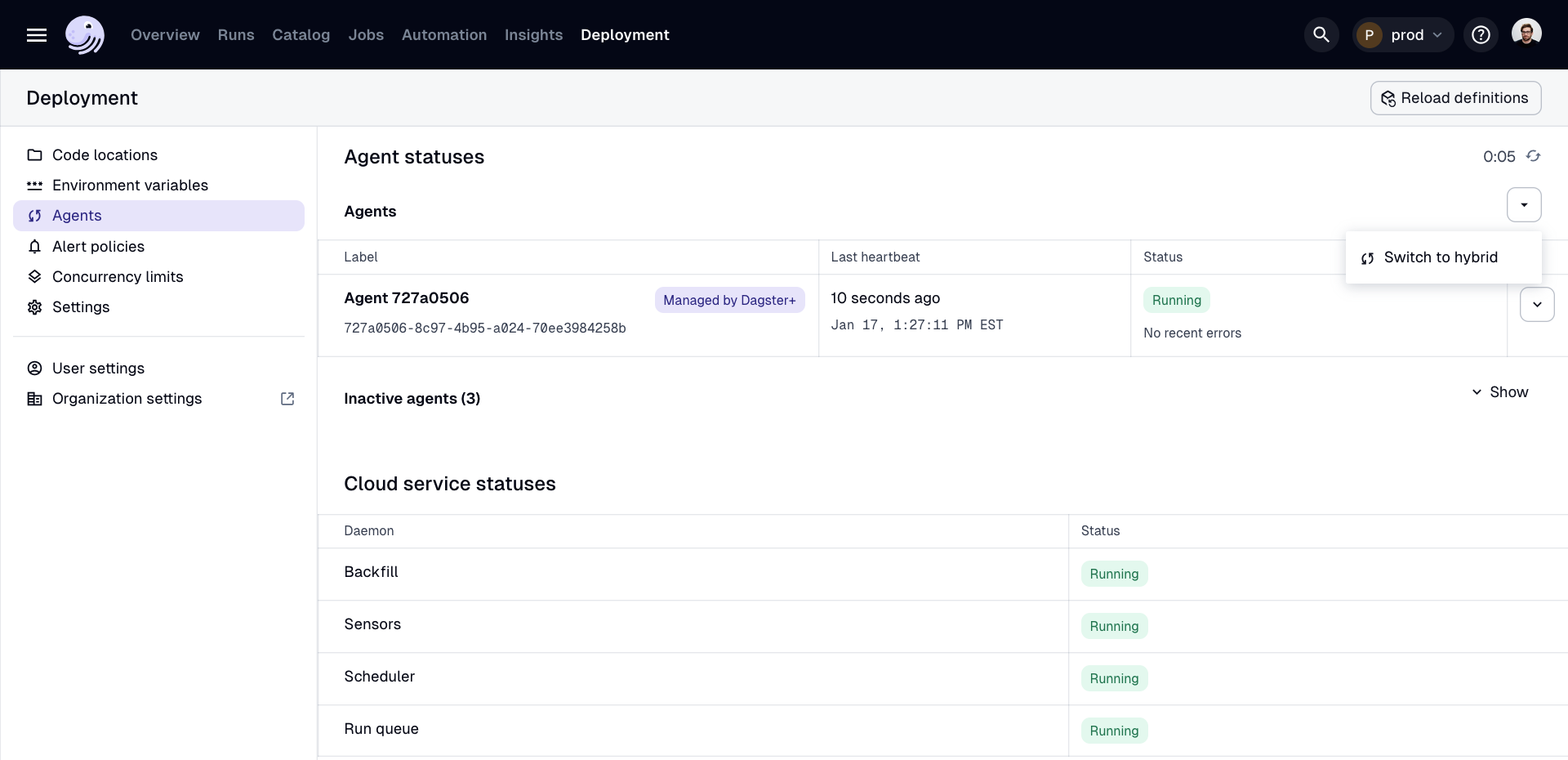Migrating from Serverless to Hybrid
After utilizing a Dagster+ Serverless deployment, you may decide to leverage your own infrastructure to execute your code. Transitioning to a Hybrid deployment requires only a few steps and can be done without any loss of execution history or metadata, allowing you to maintain continuity and control over your operations.
Transitioning from Serverless to Hybrid requires some downtime, as your Dagster+ deployment won't have an agent to execute user code.
Prerequisites
To follow the steps in this guide, you'll need:
- Organization Admin permissions in your Dagster+ account
Step 1: Deactivate your Serverless agent
- In the Dagster+ UI, navigate to the Deployment > Agents page.
- Click the drop down arrow on the right of the page and select Switch to Hybrid.

It may take a few minutes for the agent to deactivate and be removed from the list of agents.
Step 2: Create a Hybrid agent
Next, you'll need to create a Hybrid agent to execute your code. Follow the setup instructions for the agent of your choice:
- Amazon Web Services (AWS), which launches user code as Amazon Elastic Container Service (ECS) tasks.
- Docker, which launches user code in Docker containers on your machine
- Kubernetes, which launches user code on a Kubernetes cluster
- Local, which launches user code in operating system subprocesses on your machine
Step 3: Confirm successful setup
Once you've set up a Hybrid agent, navigate to the Deployment > Agents page in the UI. The new agent should display in the list with a RUNNING status:

Next steps
- Learn about the configuration options for dagster.yaml